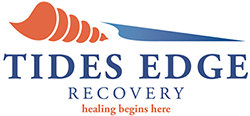Going through the detox process is important as you begin your journey to a brighter future. However, once you’ve completed detox it’s essential to know that therapy is the next important step in your recovery. Without therapy, you may relapse quickly. Treatment professionals design therapy to reveal issues that influence or cause substance abuse. By addressing these issues, individuals are better poised to make their sobriety lasting. Many different therapeutic approaches exist benefiting those attempting to quit drugs. One is cognitive-behavioral therapy or CBT.
CBT has been found to be an effective treatment for addiction. Studies have shown that CBT can reduce the symptoms of addiction and help people abstain from substance abuse. In fact, CBT is a promising treatment option for many people who struggle with addiction.
Want to know more about cognitive-behavioral therapy? Call us today at 866.723.3127 for more information.
What Is Cognitive-Behavioral Therapy?
Cognitive-behavioral therapy is a form of psychotherapy that involves your thinking, emotions, and behavior. CBT is based on the theory that our thoughts affect our emotions, which, in turn, affect our behavior. Thus, when an individual gets into a pattern of negative thinking, it causes similar emotions and provokes negative behavior. The cycle of negative thinking, downcast emotions, and wrong choices continually feeds one another until the cycle is broken. When you think about what is CBT, it is breaking that cycle once and for all. And it all starts with the negative thought patterns.
It all starts with negative thought patterns. Most of us have what are called “negative automatic thoughts” (or NATs). These are the unhelpful, hurtful, and harmful thoughts that pop into our heads without us even knowing it. They are often so automatic that we don’t realize we are thinking them. NATs can include thoughts like “I’m not good enough,” “I can’t do this,” “This is never going to work,” and so on. These thoughts can lead to feelings of anxiety, depression, worthlessness, and hopelessness. And, as you might expect, these feelings often result in negative behaviors, such as using drugs or alcohol.
How Does CBT Work?
So, what is CBT and how does it work? Cognitive-behavioral therapy targets the core problem, which is the mind. During your sessions, the therapist helps identify the kinds of false thinking that have established itself in your mind. The negative thinking can be about yourself, others, and the world.
Some therapists believe that this faulty thinking stems from childhood experiences that shape our thinking subconsciously. Then as we get older, these experiences serve as a framework for future experiences. Every following experience tends to confirm our already predetermined mindset.
It can be difficult breaking down this negative thinking, but with the help of your therapist, you will find new ways of viewing the world and yourself. As you begin to think differently, you will start to feel differently, too. This leads to you making better decisions and having behavior about which you can be happy.
Find Peace At Tides Edge
At Tides Edge, you’ll discover a new way of living and a hope-filled future. Compassionate caregivers will make sure you are at ease throughout the entire detox process. Our highly qualified staff will show you just what is cognitive-behavioral therapy. As you complete the program, you’ll be proud of the person you’re becoming.
Our accredited treatment programs offer you means to create a plan you can trust. Therefore, you don’t have to worry about whatever substance you are addicted to because we work with all types of addiction issues. For example, some of the addictions we treat include:
- Alcohol addiction
- Meth addiction
- Heroin addiction
- Opioid addiction
- Painkiller addiction
Don’t wait another day to seek help for your addiction needs. Now that you know the answer to what is cognitive-behavioral therapy, you can reach out to a comprehensive detox center, such as Tides Edge Detox. So contact us at 866.723.3127, and we’ll get you on the road to recovery.









